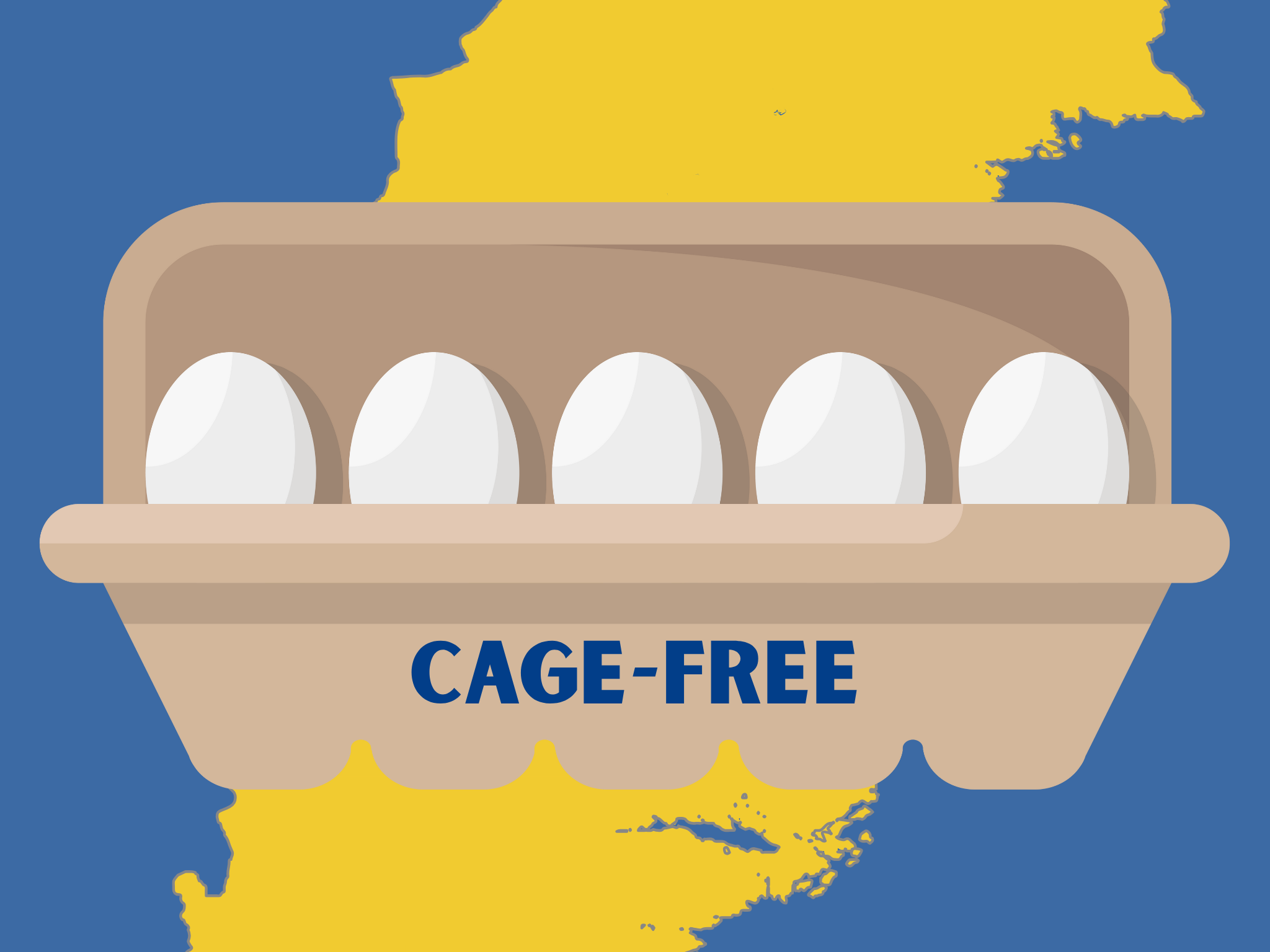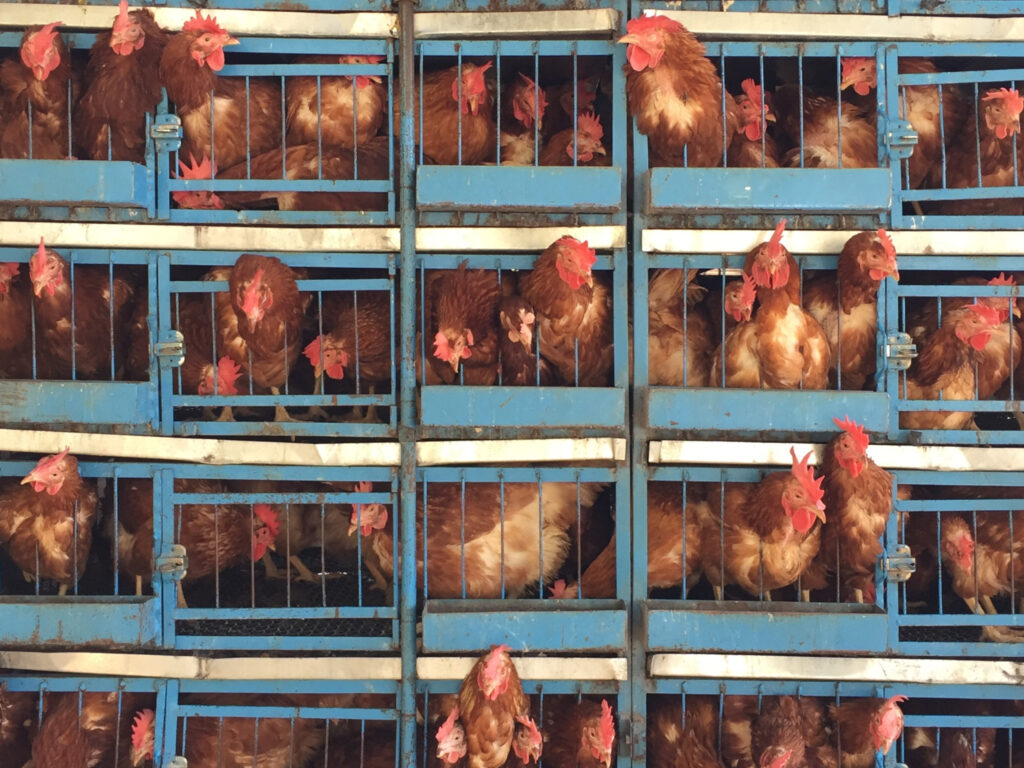
Sweden no longer has any hens living in cramped cages, in the only instance of a country making the move without legal coercion.
After decades of work from animal rights activists, Sweden is officially cage-free.
According to animal advocacy group Project 1882, which obtained figures from regional authorities as well as the egg industry, there are no more hens kept in cages in the country.
It makes Sweden the only nation to have gone cage-free without legislated bans. “Project 1882’s supporters have demonstrated that change is possible, even when politics fails,” said Benny Andersson, CEO of the organisation.
How Sweden slowly phased out caged farming

The group’s effort to rid Sweden of caged hens dates back 50 years, and involves political advocacy, corporate dialogue, public campaigns, and international efforts.
The first real signs of change came in 1988, when the Swedish parliament voted to ban caged farming. At the time, 95% of hens were kept in barren battery cages. But when the 10-year transition period ended, the egg industry hadn’t moved past the enclosures. As a result, the law was amended, and cage use continued.
While Sweden then banned battery cages and introduced labelling rules to aid consumer transparency, “enriched” cages were still fair game.
It led Project 1882 to intensify its advocacy efforts through comprehensive reports, repeated public awareness campaigns, corporate dialogues, and direct engagement with policymakers. As a result, in 2008, Hemköp became the first retailer to end the use of caged eggs.
In the 2010s, Coop, Willys, Lidl, Netto, and City Gross followed suit, before new efforts began targeting the phaseout of caged eggs entirely from food chains. In 2019, the three largest wholesalers in Sweden adopted cage-free commitments.
Finally, 13 years after the first campaign, the last remaining retailer, ICA, went cage-free in 2021. This was followed by the wholesaler, Martin & Servera, completing its phaseout this year.
In fact, since 2008, more than 85 retailers, hotels, restaurants and wholesalers have eliminated caged eggs after discussions with Project 1882, affecting over 17 million hens. And its ranking of animal-friendly municipalities has led all Swedish municipalities to choose to exclude caged eggs from their public procurement.
Legislative action important to protect cage-free status

Project 1882 also collected 50,000 signatures for the European Citizens’ Initiative, End the Cage Age, which led the EU to promise a ban on caged farming. However, while that legislation was initially set to come in 2023, it has now been delayed until 2026.
This was a result of intense pressure from meat industry interest groups, which used a variety of tools to influence the decision-making around the ban, including an influential letter by industrial farming group Copa-Cogeca (which has deep ties with several MEPs), a 60-page report discrediting the EFSA’s proposed legislation, and public speaking engagements questioning scientists.
Last year, End the Cage Age launched a legal action against the EU’s failure to deliver on its promise. If the legal action is successful, the European Commission would be mandated to publish its proposals within a “clear and reasonable timescale”, and grant access to its file on the End the Cage Age ECI.
Project 1882 is calling for legislative action against caged farming within Sweden too, suggesting that while it sets a powerful example for the rest of the region, there’s a risk that cages could return without legal enforcement.
“We have seen fantastic progress, but now Sweden must take the next step,” said Andresson. “Project 1882 demands an immediate legal ban on the keeping of hens in cages. There is no reason to wait.”
Sweden’s animal welfare win comes just weeks after Switzerland approved rules that mandate businesses to declare on-pack if the meat, dairy and egg products they’re selling are linked to animal suffering, like being produced via painful procedures without anaesthesia or stunning.
German discount retailer Aldi Süd reorganised its fresh meat displays to reflect animal welfare standards in May, introducing a colour-coded system grouping products by the conditions in which they were raised.
And in Asia, more than 175 companies have improved their sourcing policies in light of sustainability and animal welfare since 2022, while free-range egg commitments are on the rise globally.
The post In A Victory for Animal Welfare, Sweden’s Hens Are Officially Cage-Free appeared first on Green Queen.
This post was originally published on Green Queen.